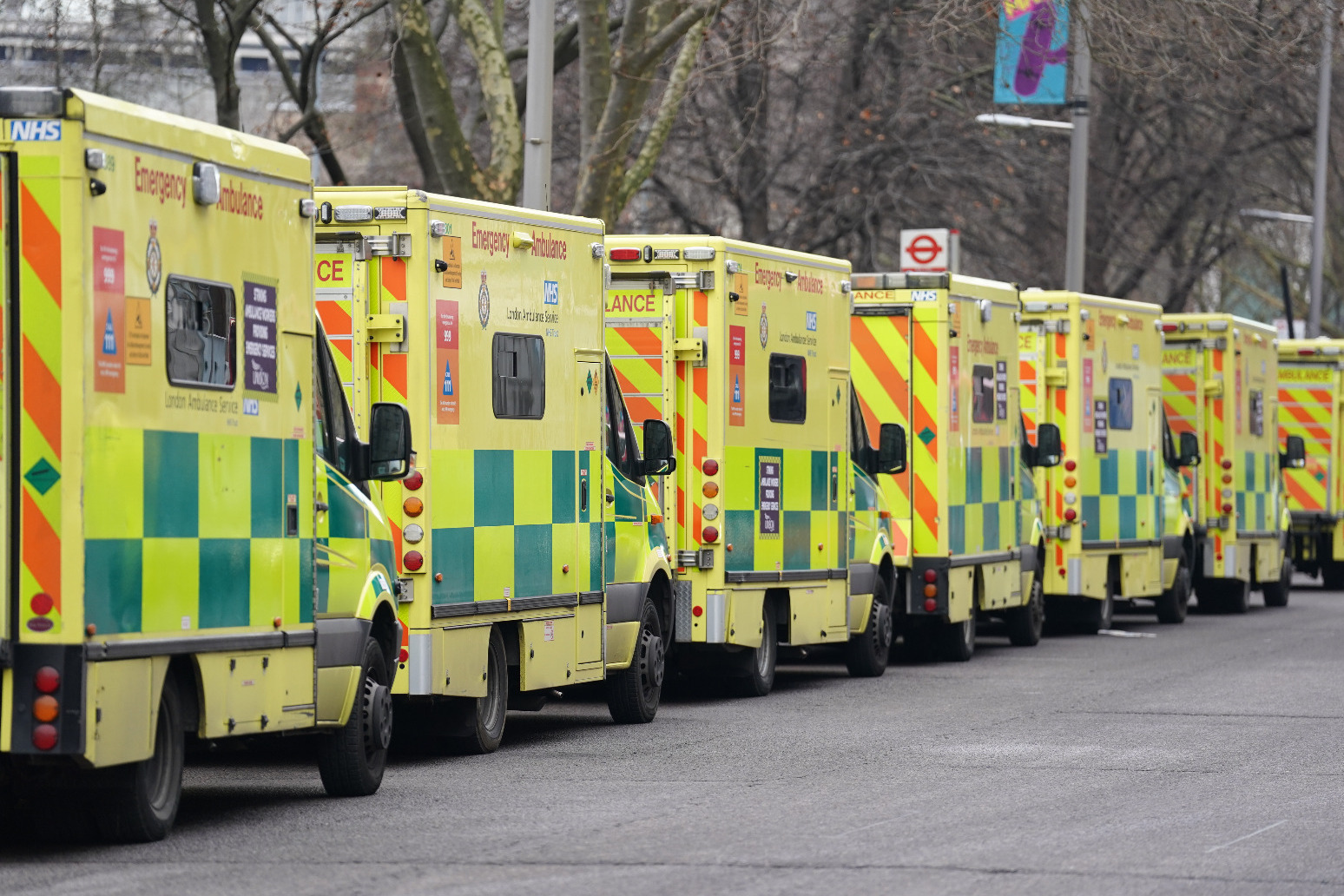
One in four ambulance patients waited at least 30 minutes last week
Ambulance handover delays outside hospitals in England have jumped to their highest level since early January in a sign the NHS is still struggling with winter pressures.
One in four (25%) ambulance patients waited at least 30 minutes last week to be transferred to A&E teams, up from one in five (20%) the previous week.
It is the highest percentage since the first week of January, when the figure stood at just over a third of patients (36%).
Some 10% of patients last week had to wait over an hour to be handed to A&E staff, up from 7% the previous week, according to NHS data.
Handover delays are likely to reflect the difficulty faced by hospitals in finding space for new arrivals.
The latest figures also show an average of 13,694 hospital beds per day last week were occupied by people ready to be discharged.
This is up from 13,498 the previous week.
At this point last year, the number stood at 12,168.
Delayed discharges and handover delays hit record levels at the start of the year as the NHS struggled to deal with a surge in flu cases, a spike in Covid-19 patients and staff absences and bed shortages.
Flu levels have been on a downwards trend since early January but the number of patients testing positive for coronavirus has started to rise again in recent weeks.
Professor Stephen Powis, NHS medical director for England, said: “Today’s figures show pressure on the NHS remains high with almost 5,000 more patients in hospitals than this time last year, while Covid cases continue to increase.
“Despite this, NHS staff are working remarkably hard and have we now have extra capacity in place – including beds and virtual wards – helping services to progress on the elective backlog even as they continued to deal with the impact of strikes.
“The NHS prepared extensively for winter, including rolling out 24/7 system control centres and falls services, and staff will build on that as part of our two-year delivery plan to recover urgent and emergency care services.”
Published: by Radio NewsHub


